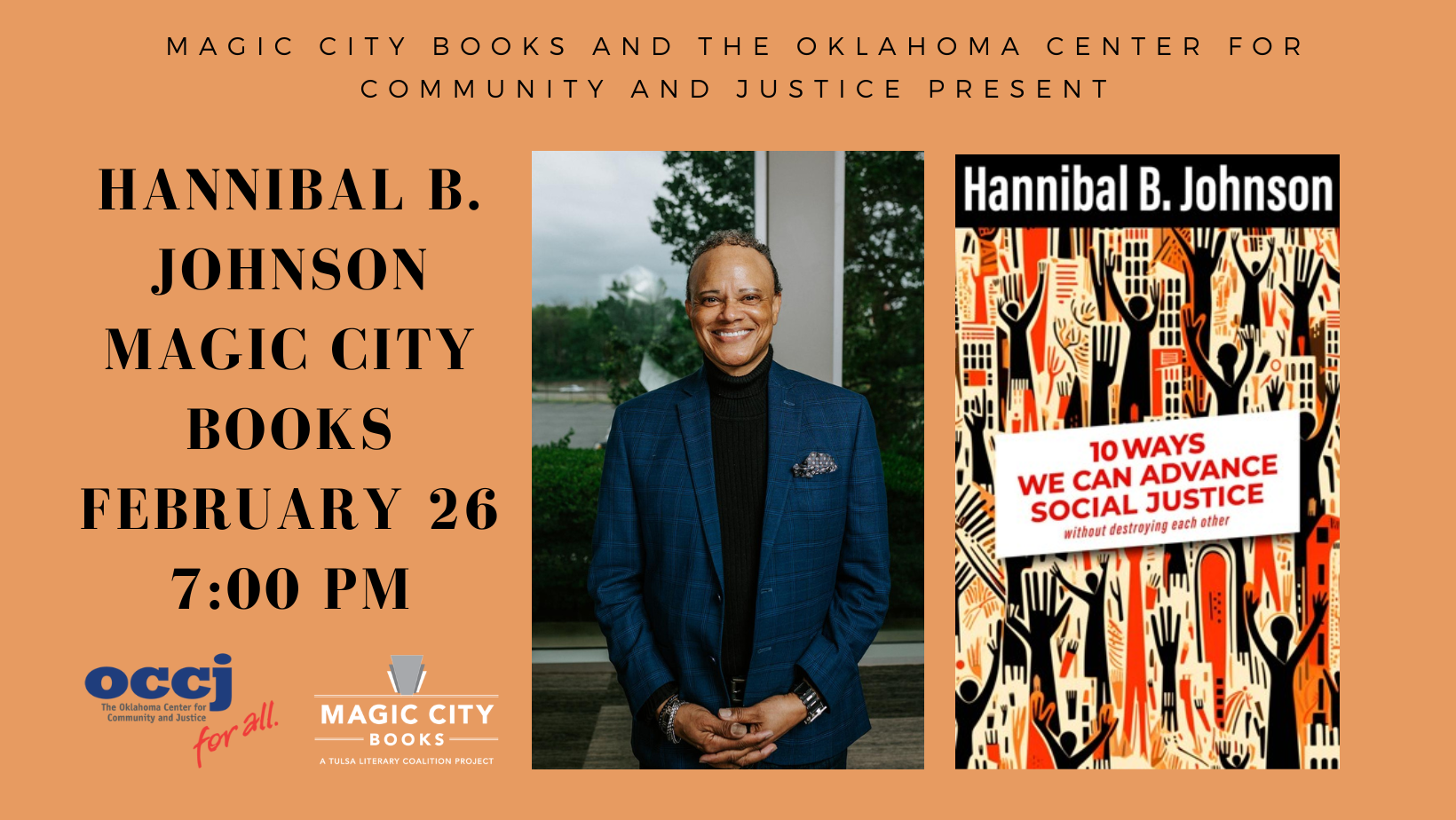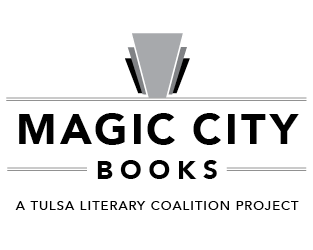
- This event has passed.
Hannibal B. Johnson
February 26 @ 7:00 pm - 8:00 pm

Magic City Books and the Oklahoma Center for Community and Justice (OCCJ) are proud to present an evening with Hannibal B. Johnson at Magic City Books on Monday February 26. Hannibal will be discussing his new book, 10 Ways We Can Advance Social Justice.
Hannibal Johnson chaired the Education Committee for the 1921 Tulsa Race Massacre Centennial Commission and served as local curator of its world-class history center, Greenwood Rising. His books, including Black Wall Street 100: An American City Grapples With Its Historical Racial Trauma, chronicle the African American experience in Oklahoma and its indelible impact on American history.
This free event will begin at 7:00 pm and at the conclusion of the program, Hannibal will sign copies of his new book.
10 Ways We Can Advance Social Justice will be available at Magic City Books starting Wednesday, February 14. Copies are also available online at: https://magiccitybooks.square.site/product/10-ways-we-can-achieve-social-justice/1934.
About 10 Ways We Can Advance Social Justice
Social justice matters because we—each of us—matter. Unless we learn to co-exist as equals, we will never live optimally. To denigrate any one of us is to demean all of us.
Absent the wholesale embrace of social justice, we risk succumbing to human tendencies to stereotype, “otherize,” and scapegoat. Those tendencies, left unchecked, lead to horrific ends.
When we see ourselves in others, we understand that our shared humanity eclipses all else. Through our disagreements, we must never doubt the dignity and worth of the other.
Certain facts and factors that cause misalignments in the social order—inequality and inequity—social injustice—but there are ways to intervene and interrupt them. This book offers 10 ways we can advance social justice.
We pay a cost for failing to internalize and act upon history’s lessons. For example, our history teems with examples of fractious relations among racial, ethnic, and cultural groups and an overarching white supremacist ideology that places some at an advantage at the expense of others. Recognizing our shared humanity—and the power of “we”—and rectifying disparities and inequities are among the chief aims of social justice initiatives.
Through critical thinking, we best position ourselves to tackle seemingly overwhelming social justice issues. To be ready, we must know, care, and act: know—look at ourselves, others, events, and institutions; care—reflect on recurring inequalities and inequities; and act—work on solutions to effect and advance meaningful, measurable, maintainable solutions. Critical thinking animates the three core activities necessary for social justice advancement: introspection, engagement, and advocacy.
Achieving social justice is an aspirational pursuit—an ongoing journey that can be fraught with peril and disappointment. It is nonetheless an odyssey worth taking—a quest so many of us have no choice but to embrace. Introspection, engagement, and advocacy are essential stops along the way.
Examine yourself. Plug in. Speak truth.
HANNIBAL B. JOHNSON, a Harvard Law School graduate, is an author, attorney, and consultant specializing in diversity, equity, and inclusion issues, human relations, leadership, and non-profit leadership and management. He has taught at The University of Tulsa College of Law, Oklahoma State University, and The University of Oklahoma. Johnson serves on the federal 400 Years of African American History Commission. He chaired the Education Committee for the 1921 Tulsa Race Massacre Centennial Commission and served as local curator of its world-class history center, Greenwood Rising. His books, including Black Wall Street 100: An American City Grapples With Its Historical Racial Trauma, chronicle the African American experience in Oklahoma and its indelible impact on American history. Johnson’s play, Big Mama Speaks—A Tulsa Race Riot Survivor’s Story, was selected for the 2011 National Black Theatre Festival and has been staged in Caux, Switzerland. He has received numerous honors and awards for his work and community service, including a lifetime achievement award from the Oklahoma Center for the Book and induction into the Oklahoma Historians Hall of Fame, the Tulsa Hall of Fame, and the Oklahoma Hall of Fame.

